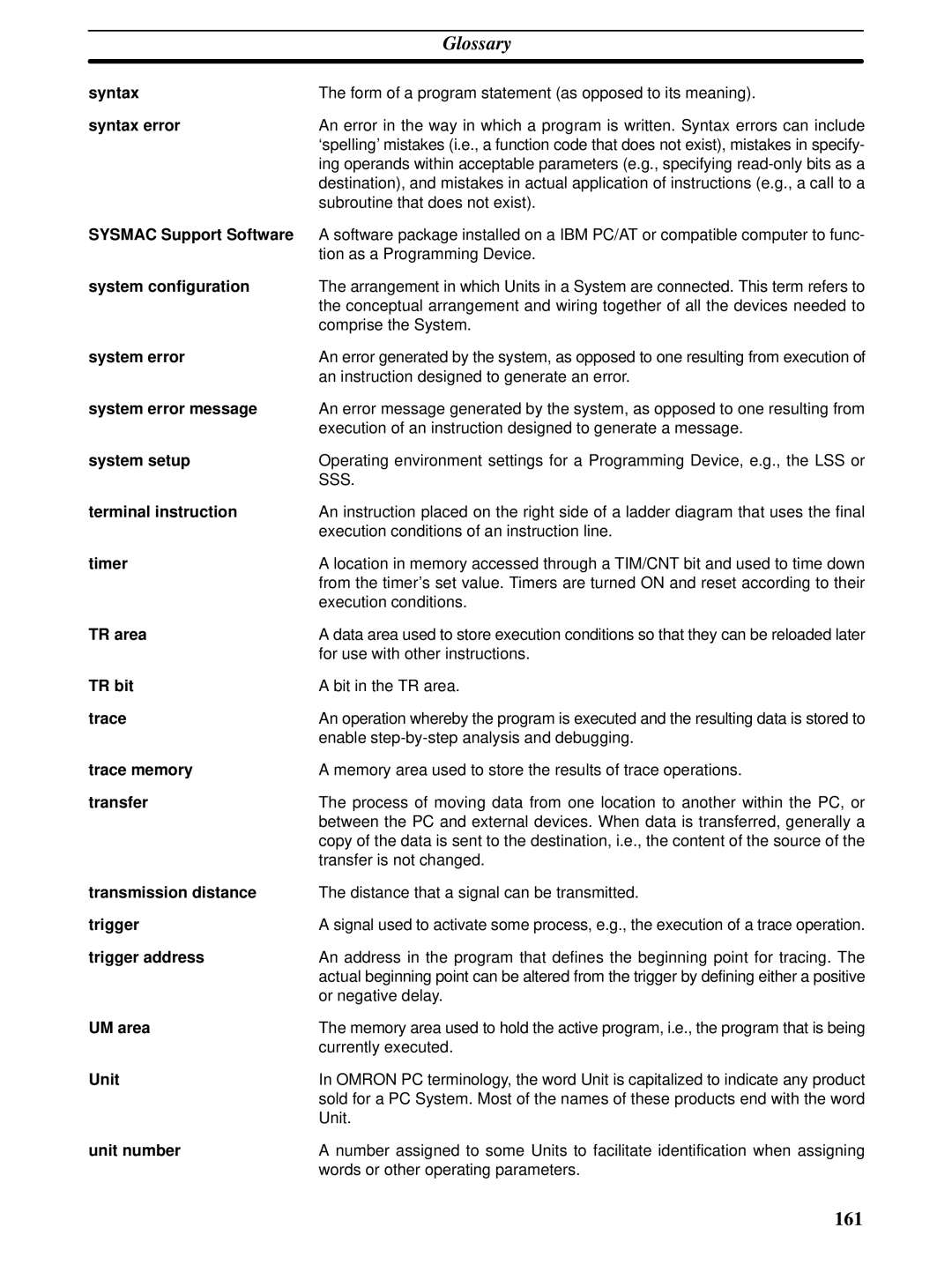| Glossary | |
|
|
|
syntax | The form of a program statement (as opposed to its meaning). | |
syntax error | An error in the way in which a program is written. Syntax errors can include | |
| ‘spelling’ mistakes (i.e., a function code that does not exist), mistakes in specify- | |
| ing operands within acceptable parameters (e.g., specifying | |
| destination), and mistakes in actual application of instructions (e.g., a call to a | |
| subroutine that does not exist). | |
SYSMAC Support Software | A software package installed on a IBM PC/AT or compatible computer to func- | |
| tion as a Programming Device. | |
system configuration | The arrangement in which Units in a System are connected. This term refers to | |
| the conceptual arrangement and wiring together of all the devices needed to | |
| comprise the System. | |
system error | An error generated by the system, as opposed to one resulting from execution of | |
| an instruction designed to generate an error. | |
system error message | An error message generated by the system, as opposed to one resulting from | |
| execution of an instruction designed to generate a message. | |
system setup | Operating environment settings for a Programming Device, e.g., the LSS or | |
| SSS. | |
terminal instruction | An instruction placed on the right side of a ladder diagram that uses the final | |
| execution conditions of an instruction line. | |
timer | A location in memory accessed through a TIM/CNT bit and used to time down | |
| from the timer’s set value. Timers are turned ON and reset according to their | |
| execution conditions. | |
TR area | A data area used to store execution conditions so that they can be reloaded later | |
| for use with other instructions. | |
TR bit | A bit in the TR area. | |
trace | An operation whereby the program is executed and the resulting data is stored to | |
| enable | |
trace memory | A memory area used to store the results of trace operations. | |
transfer | The process of moving data from one location to another within the PC, or | |
| between the PC and external devices. When data is transferred, generally a | |
| copy of the data is sent to the destination, i.e., the content of the source of the | |
| transfer is not changed. | |
transmission distance | The distance that a signal can be transmitted. | |
trigger | A signal used to activate some process, e.g., the execution of a trace operation. | |
trigger address | An address in the program that defines the beginning point for tracing. The | |
| actual beginning point can be altered from the trigger by defining either a positive | |
| or negative delay. | |
UM area | The memory area used to hold the active program, i.e., the program that is being | |
| currently executed. | |
Unit | In OMRON PC terminology, the word Unit is capitalized to indicate any product | |
| sold for a PC System. Most of the names of these products end with the word | |
| Unit. | |
unit number | A number assigned to some Units to facilitate identification when assigning | |
| words or other operating parameters. | |
161
